Ottawa helps drive push for more housing in Fredericton, but in whose backyard?
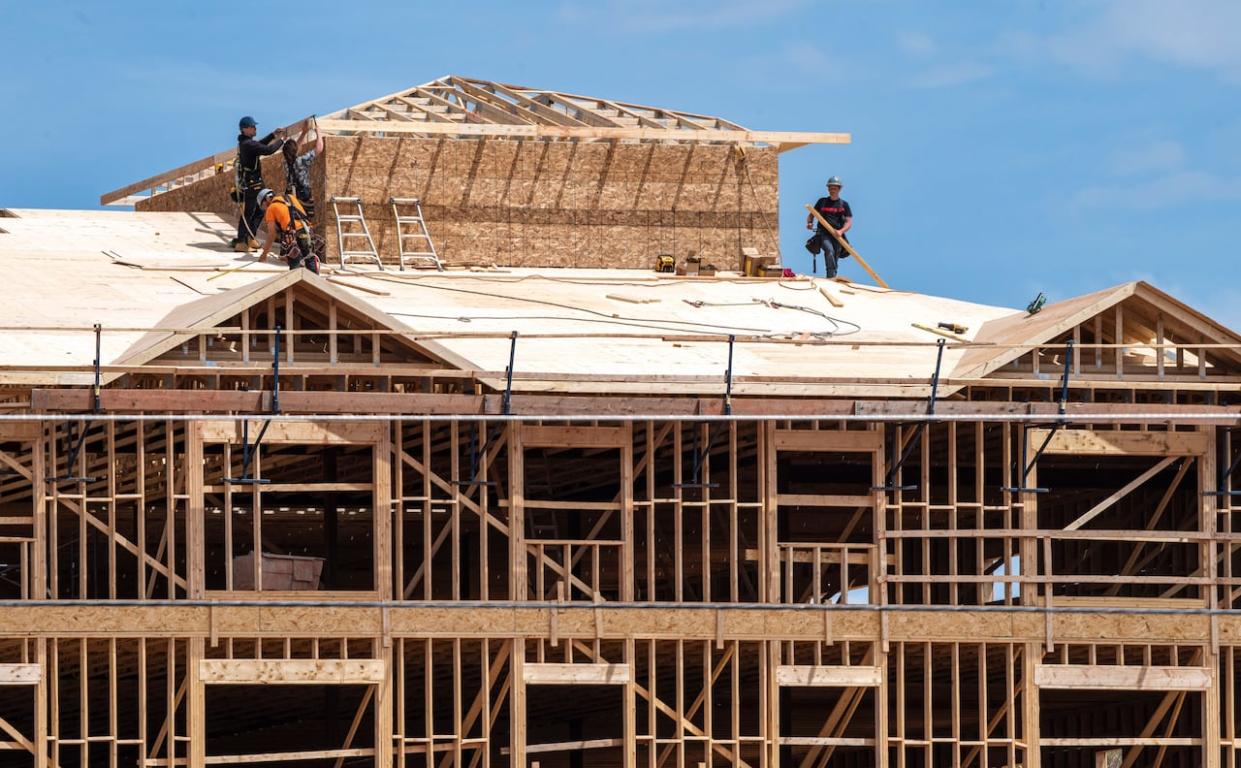
The City of Fredericton has successfully sold the federal government on its need to rapidly build more housing, but it may still have to convince an even tougher crowd.
As part of its national $4-billion Housing Accelerator Fund, Ottawa is giving Fredericton $10.3 million, some of which is expected to help developers build about 300 homes over the next three years.
However, a recent history of housing proposals in Fredericton hints at hurdles that still need to be overcome — namely, opposition from other residents.
"We all know that as these changes are happening in the city, that it's difficult for people, and the look and the feel of their neighborhood might change a little bit, and that's hard and we are sensitive to that," said Mayor Kate Rogers, in an interview Monday.
"But there is also a real need [for more housing] and we need to address that real need and it's on us to do that as sensitively as possible."
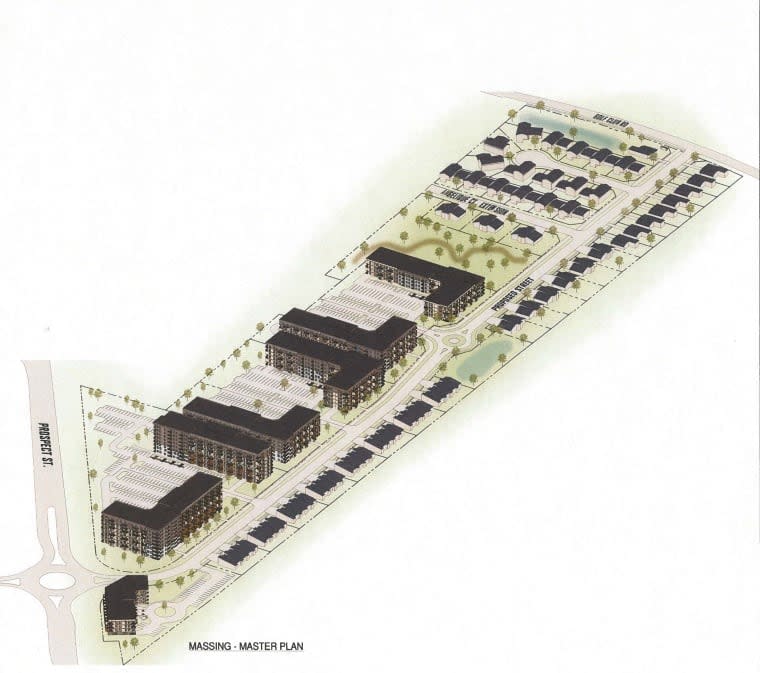
Cedar Valley Investments' proposal would see apartment buildings constructed on the southern two-thirds of the property, with townhouses and detached homes on the northern and eastern sides of the property. (City of Fredericton)
A large proposal in the Golf Club Road neighbourhood narrowly passed a vote at council in November after neighbours mounted an intense campaign against it that saw more than 150 letters of objection sent to city hall.
And in December, council voted down a housing proposal on Gibson Street following a similar campaign by neighbours in that area.
The Gibson Street proposal comprised 88 housing units and was the only residential rezoning application to be rejected by council in 2023, according to city spokesperson Shasta Stairs.
Council approved a total of 21 residential rezoning applications in 2023, totalling 5,346 units, though some of those are part of larger properties with multiple phases to be developed over time, she said.
More engagement by developers needed, says mayor
When a developer requires a zoning bylaw amendment to build apartments or townhouses, the fate of their proposal is ultimately decided by councillors.
But before the final vote is made, the public is given the chance to appear before council to share their support or opposition to the plan.
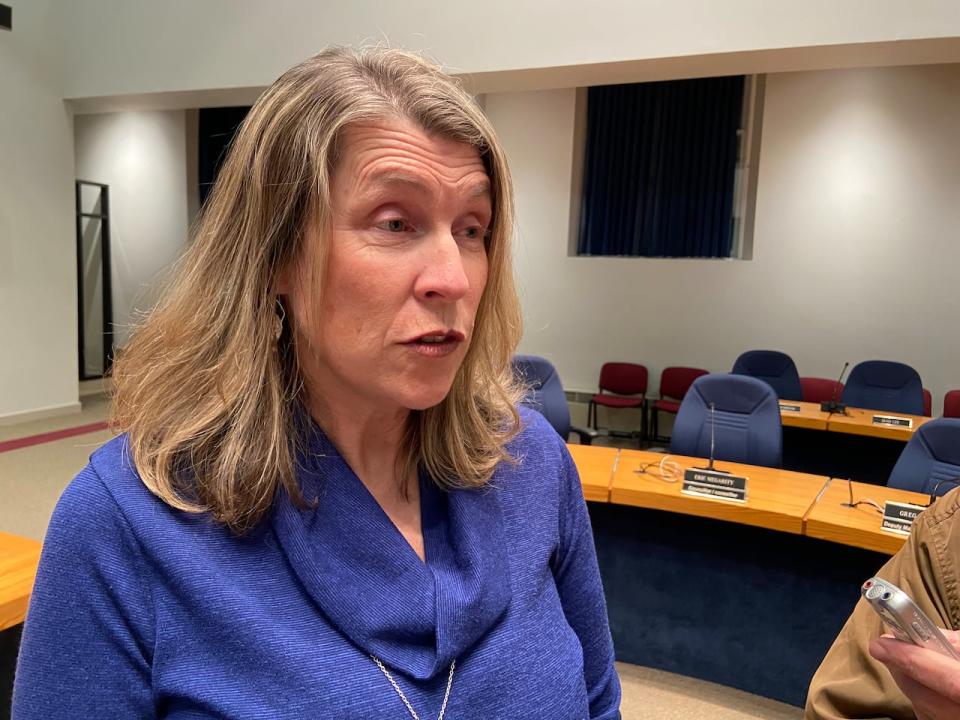
Fredericton Mayor Kate Rogers says she thinks developers need to do more engagement with residents if they want to mitigate the chances of their proposal facing opposition. (Aidan Cox/CBC)
Asked about her reaction to the backlash to the two proposals, Rogers said she thinks they signal a need for developers to do more to get the community on side with their plans.
"We need to be working more when these applications are coming forward to make certain that the neighbours, the residents living in that area, are very aware of what is happening," she said.
"We're going to be looking to the developers when they put forward applications, that they are meeting, engaging with the public in advance so that they're aware."
An example where engagement worked
When a developer applies to rezone a property, the "low bar" is to just let the municipality inform residents within a 100-metre radius about it, said Rob LeBlanc director of planning at Fathom Studio, a planning and design firm based in Dartmouth, N.S.
Part of what LeBlanc does for Fathom is work with developers to raise that bar by consulting residents on what's being proposed in their neighbourhood.

Public engagement is an important step for developers to take if they want their rezoning application to be successful, said Rob LeBlanc, director of planning at Fathom Studio. (Submitted by Fathom Studio)
Last June, his team held an open house event in Fredericton's McLeod Hill Road neighbourhood to do just that.
In October, councillors unanimously voted in favour of the proposal to construct apartment buildings, townhouses and detached homes totalling 1,475 units.
"The developer made my job real easy," said Coun. Mark Peters, whose ward includes the rezoned property, speaking after the vote.
"I only heard from constituents when [the developers] were in there actually clearing the land before they did the public engagement, and I think that's kind of what brought on the public engagement. After that, I had zero emails, zero phone calls on it."
LeBlanc said he credits the application's success largely to the open house event.
"We held it at one of the local gyms and we brought, I think it was 12 or 15 big poster-sized displays that had all kinds of details about the project," he said.
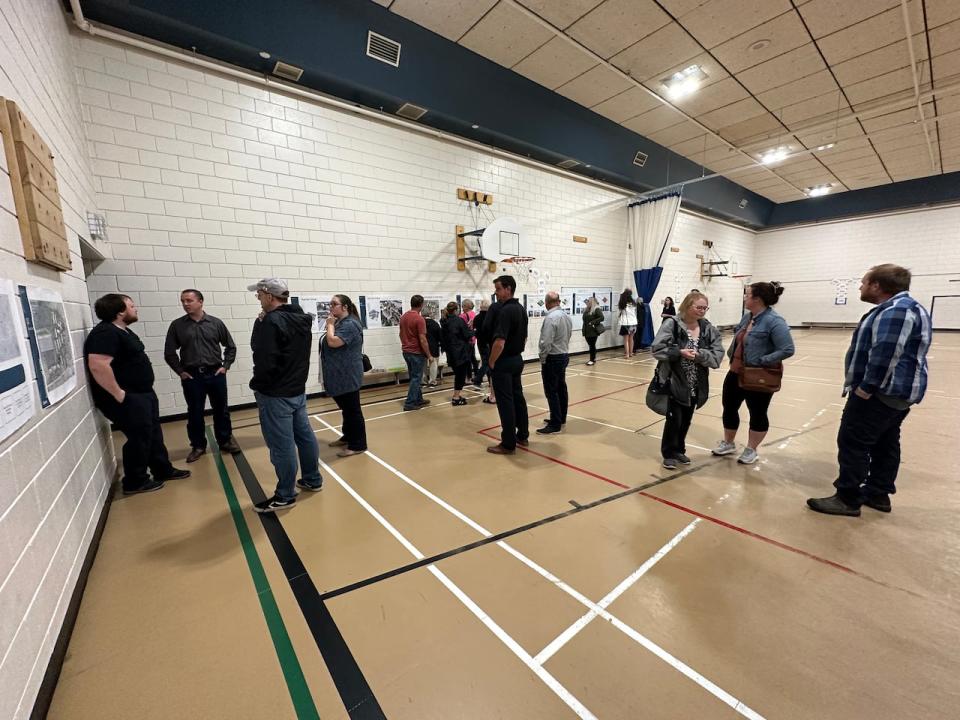
Fathom Studio hosted an open house event last June to consult residents on a planned rezoning to allow hundreds of new apartment and townhouse units to be built in the McLeod Hill Road area. (Submitted by Rob LeBlanc)
Feedback from attendees resulted in the developers deciding to rearrange the location of park space, as well as to build detached homes, rather than townhouses, next to existing detached homes in the neighbourhood.
"We need housing rapidly, and that doesn't have to compromise the quality of communities," LeBlanc said.
"And so if you can work with the community to understand its values, there's usually a good way to get an effective development built, and that just means getting out there and listening to what people are afraid of and what they'd like to see."
CBC News asked Louie Youssef, the developer behind the Golf Club Road proposal, for an interview about how developers can mitigate the chance their proposals face public opposition.
In an email, Youssef declined providing an interview, but said he doesn't think the housing crisis will be solved in his lifetime unless things change dramatically.
Strong emotions amid a changing city
Up until about the early 2000s, residential housing in Fredericton largely developed in a less dense, suburban format, said Matthew Hayes, an urban sociologist and professor at St. Thomas University.
But as vacant land has become more scarce, developers have looked to build up in order to increase density.
That's where the ambitions of developers might rub up against those of existing residents, who bought into a neighbourhood for a certain style and charm, he said.

Matthew Hayes, an urban sociologist and professor at St. Thomas University, said he thinks there'd be value borne out of making the planning approval process more democratic in Fredericton. (Tori Weldon/CBC)
"Those are real and important emotions and sentiments and problems in people's lives," Hayes said.
"And it seems that, you know, in a couple of key developments, there has been a kind of development-as-a-right, you know, 'This, this is mine, I'm going to do it', and this has caused conflict with people in communities."
Opponents of new housing developments have themselves faced pushback, with the term NIMBY — short for "not in my backyard" — being used to describe residents who stand against changes to their neighbourhood.
Hayes said that term has different uses for different people, but at the end of the day, has come to underscore how emotionally divided some have become over how their city develops.
"So [the term NIMBY] is always used in ways that are designed to portray people's emotions as irrational or unfair ... and that doesn't necessarily, you know, advance projects or advance, you know, communities coming together to deal with some of the difficult decisions that need to be made."
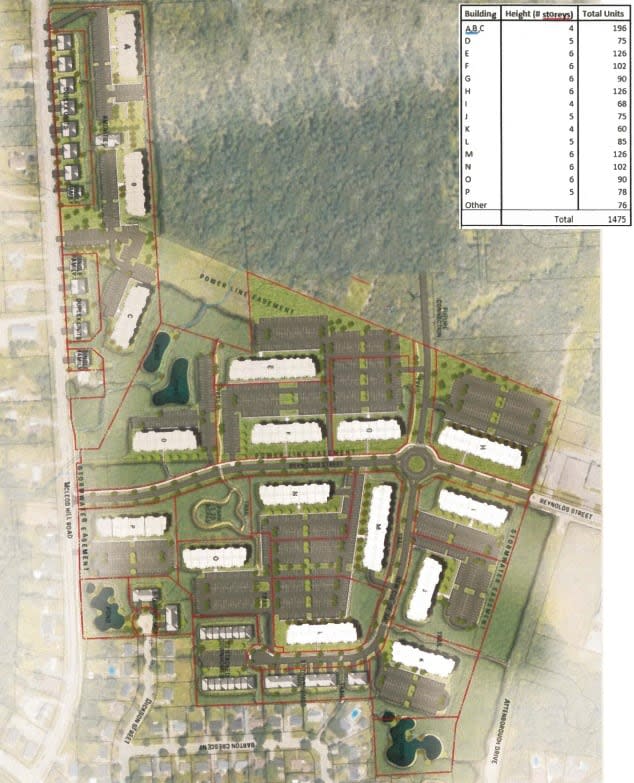
Fathom Studio successfully rezoned property near the intersection of McLeod Hill and Royal roads giving them permission to construct a series of apartment buildings, townhouses and detached homes comprising a total of 1,475 units. (City of Fredericton)
With Fredericton doubling down on efforts to encourage more housing development, Hayes said it's possible that more controversial proposals will come forward.
As that happens, he said there will be value in a more "democratic urban planning" approach that takes ideas from residents about the kind of city they want to live in.
"I think that some of the changes that are taking place are potentially very exciting, but they also are going to clash with certain groups and it will be interesting to see how that plays out," Hayes said.


